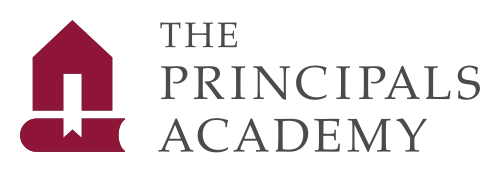This year I have the privilege of coaching three newly appointed deputy-principals. Our policy is to mentor only those young deputies whose principals have already enjoyed an association with the Principals Academy. Investing in the development of young leaders in their forties makes good sense.
The focus is so firmly on principals, certainly in my writing, so let’s shine the light on the role of the deputy-principal. First and foremost, deputies must be experienced, expert and very successful teachers. Being professional role models in the classroom is, from a core business point of view, the most important part of their job. These days deputies are called upon to be academic heads, curriculum delivery specialists and mentors of the heads of every subject department.
I realise that great teachers don’t necessarily take to the demands and pressure of school leadership, but great teaching is an indispensable requisite for leading other teachers. It’s not just about expecting subject meetings, minutes, control and moderation to be in place; it’s about taking teaching in every classroom to a place which ensures that all learners develop their full potential.
One of the critical weaknesses of our education system is the effectiveness of Heads of Departments who are not simply promoted to post level two but are tasked with actively raising standards of teaching and learning. Deputies have a big role to play in growing that realisation.
Generally, deputies have to find their way. Their roles and responsibilities are dependent on so many factors like:
the respect and trust which characterise their relationship with the principal,
- their standing in the staffroom,
- their actual expertise as sound administrators and data handlers,
- their ability to generate the modern demand for evidence of simply every happening in the school,
- the compassionate and competent way in which they gain the confidence of the community in dealing with teachers, teenagers, parents and the public,
- their financial acumen,
- their feel for ethics and good governance,
- their ability to manage a school discipline system which is workable, supported, consistent and fair,
- their skill in the field of conflict resolution involving teachers, teachers and learners, parents and between the learners themselves,
- their attention to detail in all aspects of running exams and other assessments,
- their flair for initiating and coordinating a co- and extra-curricular programme,
- their ability to successfully involve teachers in activities beyond the classroom,
- their visibility at the gate, in the corridor and at the stairs,
- their strength in bringing the school together in the quad or in the hall,
- their practical know-how in managing the maintenance and cleanliness of the campus.
Whereas principals are instructional leaders so much of their day goes to dealing with issues such as safety and security, the wellness of personnel and pupils under pressure, the demands of the district and lengthy procedures involved in appointing and monitoring staff to name but a few.
It is imperative that busy principals empower their deputies to actively become the de facto academic head.
However, our schools are so complex that deputies are just as detached from instructional responsibilities by dealing with student discipline and personnel issues.
We all know how divisive and dysfunctional school staffrooms become when principals and deputies are at loggerheads.
One SA study of deputies indicates that ‘although deputy principals perceived themselves to be leaders and the principals’ right-hand man or woman, their power or authority rested with the principal. There was very little that deputy principals could do without the principal’s approval’.* I can’t say I agree with this sentiment. The truth is that principals and deputies can achieve so much together. That collective impact is based on openness and communication. And, these days, deputies get very real chances to be long term acting-principals. If you are acting for a term or more you are, in effect, the principal.
Principals get to meet one another regularly at a range of meetings. Deputies definitely have fewer such opportunities. One should never wait for someone to get deputies together. Make it happen, but take care to meet with deputies of schools similar to yours in type (primary or high) and size. That interaction will be valuable.
I came across an interesting quote. A Canadian deputy principal espoused the feelings of many when he commented in a survey, ‘I love my job, I love what I do. I just cannot do it.’ ** I can hear you clapping.
Everything possible should be done to ensure a positive and healthy relationship between principal and deputies; positive in that it works through that regular communication and the promotion of a partnership, and healthy in that it is based on the emotional maturity expected of a school’s most senior managers.
Til next time.
Paul
Coach/Mentor
The Principals Academy Trust
No: 04/24
28 February 2024

